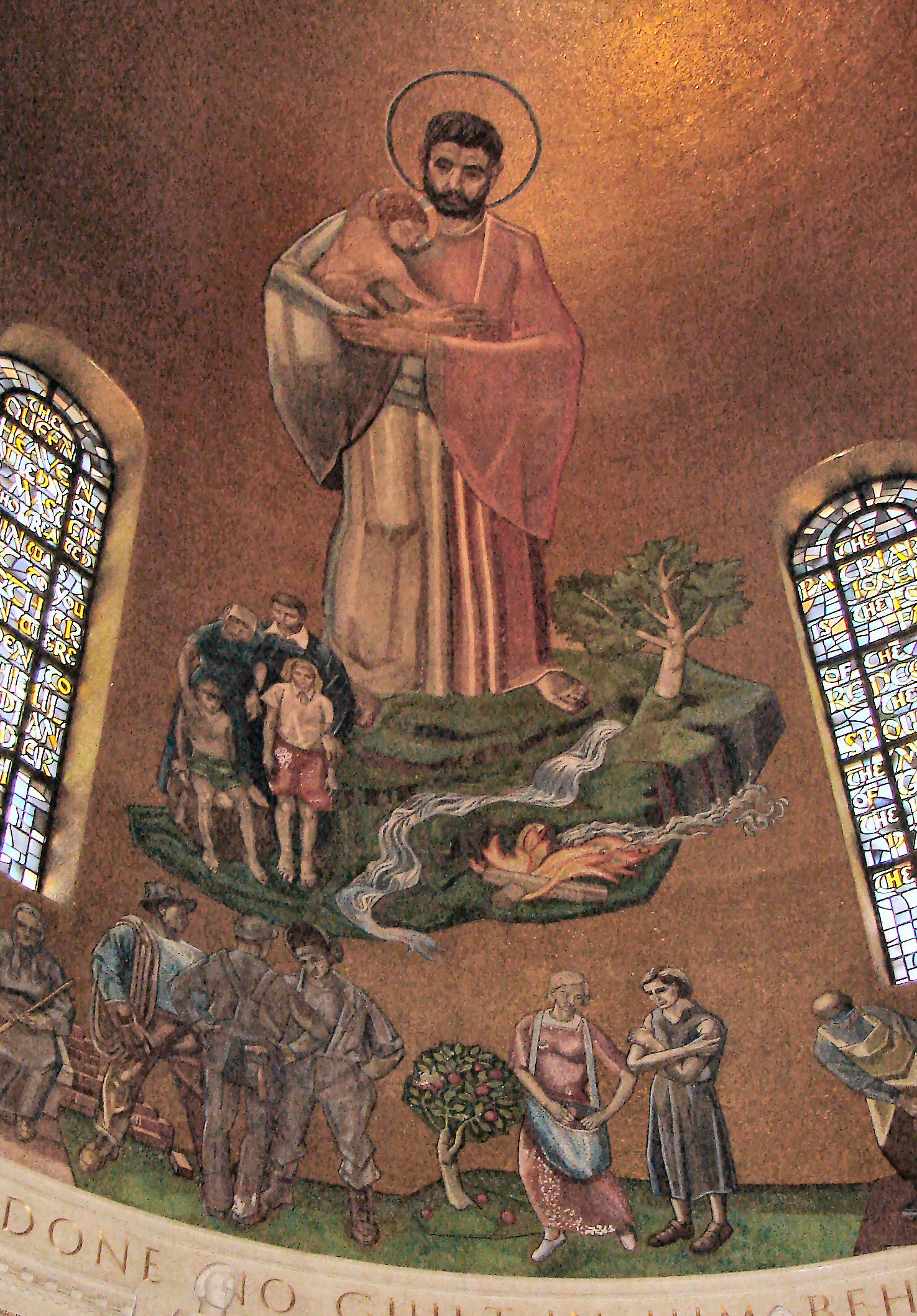
22nd Sunday of Ordinary
Time
A Homily - B Cycle - 2005-2006
First Reading - Deuteronomy 4:1-2, 6-8
Responsorial Psalm - Psalm 15:2-3, 3-4, 4-5
Second Reading - James 1:17-18, 21b-22, 27
Gospel - Mark 7:1-8, 14-15, 21-23
Mark wrote to explain Christ
to the new Gentile converts.

When the Pharisees with some scribes who had come from Jerusalem gathered around Jesus, they observed that some of his disciples ate their meals with unclean, that is, unwashed, hands. - For the Pharisees and, in fact, all Jews, do not eat without carefully washing their hands, keeping the tradition of the elders. And on coming from the marketplace they do not eat without purifying themselves. And there are many other things that they have traditionally observed, the purification of cups and jugs and kettles and beds. - So the Pharisees and scribes questioned him, "Why do your disciples not follow the tradition of the elders but instead eat a meal with unclean hands?" He responded, "Well did Isaiah prophesy about you hypocrites, as it is written: This people honors me with their lips, but their hearts are far from me; in vain do they worship me, teaching as doctrines human precepts.
You disregard God's commandment but cling to human tradition." He summoned the crowd again and said to then, "Hear me, all of you, and understand. Nothing that enters one from outside can defile that person; but the things that come out from within are what defile.
"From within people, from their hearts, come evil thoughts, unchastity, theft, murder, adultery, greed, malice, deceit, licentiousness, envy, blasphemy, arrogance, folly. All these evils come from within and they defile."
The Emphasis in each of today's readings is on 'action'. The readings call us to be 'doers', not just 'hearers': - "observe these (statutes) carefully . . .(Deut.4); "Act on this word . . . " (Jas. 1).

Jesus' mention of "human traditions", and St. James' emphasis on doing good deeds as evidence of one's faith provide us with two areas wherein we can assess how others perceive our catholic faith and how we, ourselves, evaluate our relationship with the Lord. In criticizing the Pharisees, Jesus was not condemning the traditions which had been handed down to the Israelites. Rather, it was their relationship with Yahweh (God) which was the important aspect of religious practices. This was very much like the contemporary criticism of Catholics that we sometimes hear: "Catholics go to Mass on Sundays, but during the week they cheat or gossip about their neighbors, etc, etc, - hypocrites!!
Another consideration which is prompted by today's readings is the theological problem which has haunted the relationship of Roman Catholicism to other Christian denominations. Martin Luther, like many scripture scholars of his day, contested the inclusion of the Book of James in the Canon of Scripture. Luther, consequently, also contested the notion that "good works" were an essential element for eternal salvation. For many non-catholics, the Bible was, and still is considered the "Sole rule of faith." It is encouraging today, to see that ecumenical activity has recently led to a mutual understanding that faith and good works are inter-related activities. We cannot "buy" faith or eternal salvation. It is our Catholic belief that faith is a freely-given gift of God, neither bought nor 'merited'. This gift of God, however, is not to remain sterile or unproductive. Faith certainly motivates good works; and it is also true that good works can lead a person to knowledge and faith, as Jesus observed; "so let your light shine before mankind, that they may see goodness in your acts and give praise to your heavenly father".
Speaking of "human traditions" reminds us that tomorrow (Monday) is a traditional American holiday. We observe 'Labor Day' as a designated time to recognize the dignity of working women and men. It behooves us, also, to be mindful that Labor Day should be more than just another "day off" or the end of summer vacation season. Webster's dictionary notes that the word 'holiday' is a secularized version of two words: "Holy" and "Day". The whole notion of having a special day to honor laborers is to be mindful that these women and men promote the good of society.
Although we cannot gainsay that our nation has come a long way in improving working conditions, we yet must honestly face and address the abuses that exist. There is still much to be accomplished in how employers treat immigrant laborers; American industrial giants establish production facilities in poorer countries and employ children and other indigent persons in "sweat shops"; politicians advocate "welfare reform" to diminish the numbers of individuals and families eligible for benefits, to curtail the allocation of food stamps, etc., yet resist a realistic increase in the minimum-wage law. These are complex problems; and I, certainly do not have the requisite education or expertise to offer solution. I mention these shortfalls in American society because it is largely in your bailiwick - "The Apostolate of the Laity" - that our faith can witness to and motivate us all to "do justice" (Ps. 15).
If you find this
material valuable, consider a tax deductible gift to support this site.
The DaCapo Foundation • 2402 Tricia Ct. • Vienna VA 22181